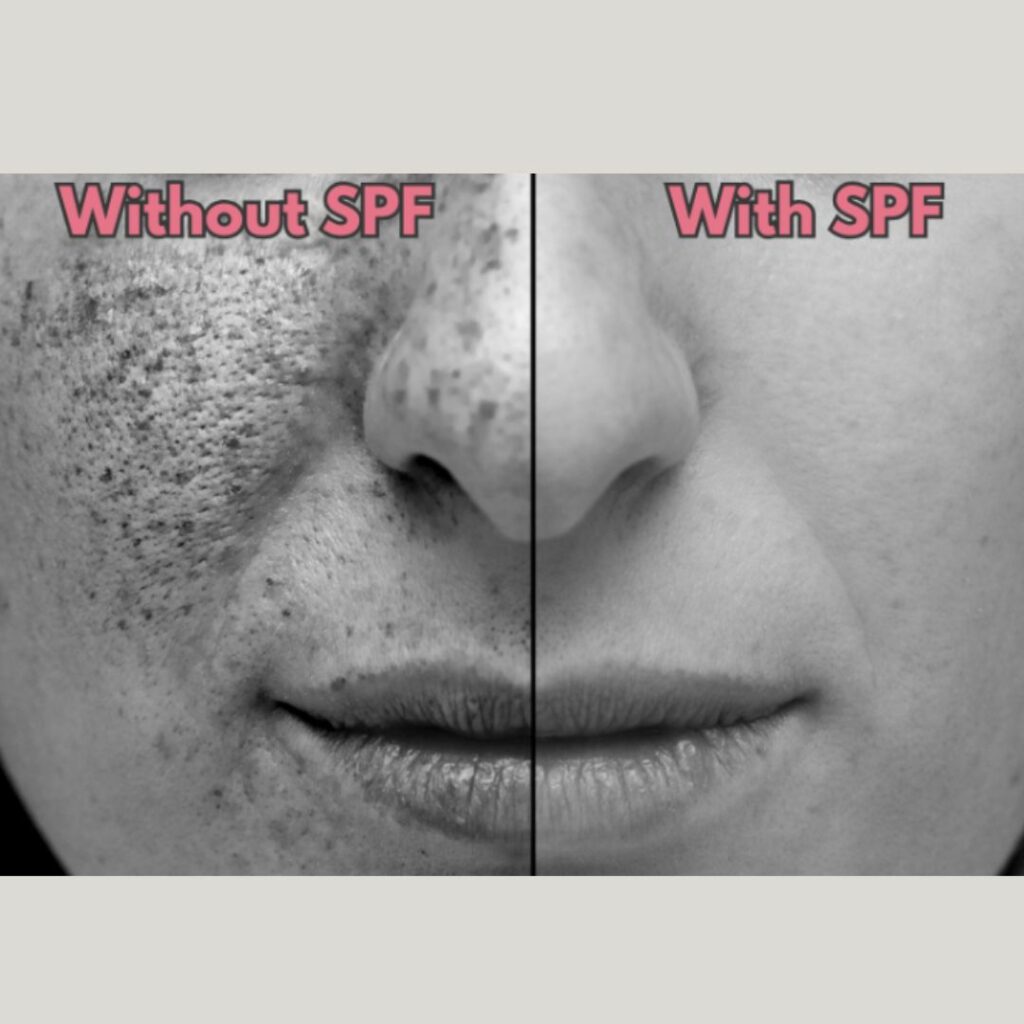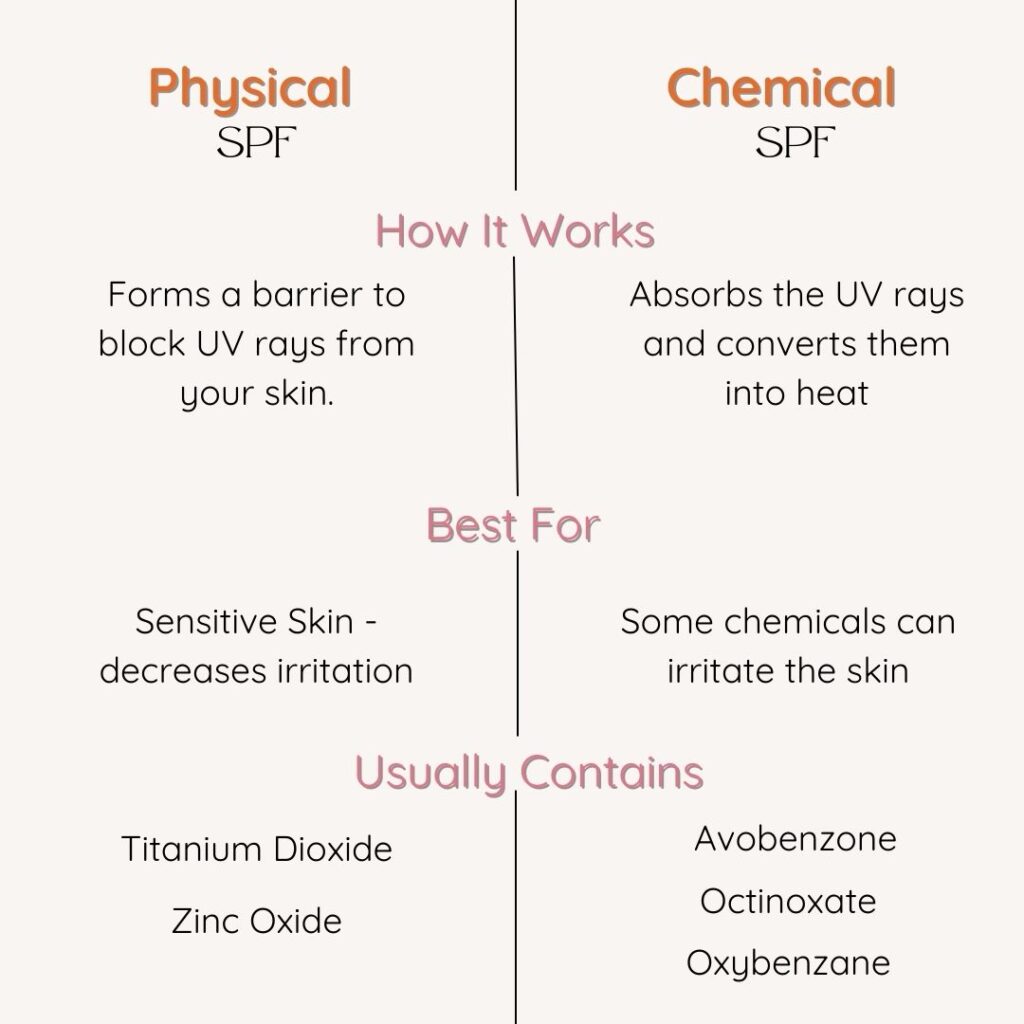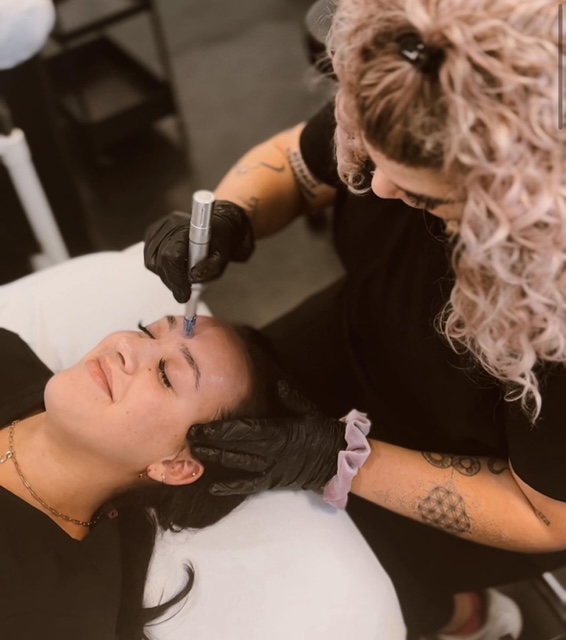Is Sunscreen the Secret to Anti-Aging?
Best Sunscreens For Aging Skin
UV Rays | Physical vs. Chemical SPF | Sunscreen in Your Routine | Best SPF For Aging |
Professional Treatments For Aging

If there’s one step in your skincare routine that can single-handedly slow down aging, it’s sunscreen for anti-aging. UV rays are the leading cause of premature aging, breaking down collagen, causing hyperpigmentation, and accelerating fine lines and wrinkles. In this guide, we’ll explore why sunscreen is essential for anti-aging, how to choose the best one for your skin type, and how to incorporate it into your daily routine.
UV Rays: The Biggest Contributor to Skin Aging
- Collagen Breakdown: UV rays penetrate deep into the skin, damaging collagen and elastin, leading to wrinkles and sagging.
- Hyperpigmentation & Dark Spots: Prolonged sun exposure triggers melanin production, resulting in age spots and uneven skin tone.
- Loss of Skin Elasticity: Chronic exposure to UV radiation leads to rough, leathery skin texture over time.
- Increased Risk of Skin Cancer: Besides cosmetic concerns, UV damage increases the risk of skin cancer, making sunscreen for anti-aging an essential daily habit.
Physical vs. Chemical Sunscreens: Which to Choose?

Physical Sunscreens (Mineral-Based)
- Contain zinc oxide and titanium dioxide that sit on top of the skin and reflect UV rays.
- Provide instant protection upon application.
- Less likely to cause irritation, making them ideal for sensitive and acne-prone skin.
- Can feel thicker and may leave a white cast on deeper skin tones.
Chemical Sunscreens
- Contain UV-absorbing ingredients like avobenzone and oxybenzone that convert UV radiation into heat.
- Tend to have a lighter texture, making them great for daily wear under makeup.
- Require 20-30 minutes to activate after application.
- Some chemical filters can cause irritation in sensitive skin types.
Which One Should You Choose?
- For sensitive skin: Opt for physical (mineral) sunscreens to reduce the risk of irritation.
- For oily or acne-prone skin: Look for oil-free, non-comedogenic chemical sunscreens.
- For dry skin: Choose sunscreens with hydrating ingredients like hyaluronic acid and ceramides.
- For deeper skin tones: Consider a tinted mineral sunscreen or a lightweight chemical formula to avoid a white cast.
How to Incorporate Sunscreen Into Your Daily Routine
- Apply Every Morning: Even on cloudy days, UV rays penetrate through windows and overcast skies.
- Use the Right Amount: Apply a nickel-sized amount for the face and a shot glass worth for the body.
- Reapply Every Two Hours: If spending extended time outdoors, reapply regularly to maintain protection.
- Pair with Antioxidants: Using Vitamin C before sunscreen enhances UV protection and combats free radicals.
Best Sunscreens for Aging Skin
Choosing the best sunscreens for aging skin can enhance your anti-aging routine. Here are some top recommendations based on skin type:
For Dry Skin
Look for hydrating sunscreens with hyaluronic acid and ceramides.
- Recommended Product: GlyMed Plus Photo-Age Environmental Protection Gel 30+ (hydrating, lightweight, and packed with antioxidants).
For Oily/Acne-Prone Skin
Opt for an oil-free, mattifying sunscreen to control excess shine.
- Recommended Product: Jan Marini Antioxidant Daily Face Protectant SPF 33 (lightweight and oil-absorbing formula).
For Sensitive Skin
Choose a fragrance-free, mineral-based sunscreen to minimize irritation.
- Recommended Product: Face Reality Ultimate Protection SPF 28 (gentle formula with zinc oxide for broad-spectrum protection).
For Combination Skin
A lightweight sunscreen that balances hydration and oil control is ideal.
- Recommended Product: Jan Marini Physical Protectant SPF 45 (weightless finish with a slight tint for an even skin tone).
Need more product and ingredient recommendations? Check out the top 10 ingredients for anti-aging!
Sunscreen and Professional Treatments for Anti-Aging

While sunscreen for anti-aging is the first line of defense against skin aging, pairing it with professional treatments can maximize results:
- Chemical Peels: Exfoliate dead skin cells to improve texture and tone.
- Microneedling: Stimulates collagen production and helps repair sun-damaged skin.
- Laser Therapy: Targets hyperpigmentation and sunspots caused by UV exposure.
- Hydrating Facials: Help replenish moisture lost due to prolonged sun exposure.
Consult a licensed esthetician or dermatologist to determine the best professional treatment plan for your skin needs.
Why Daily Sunscreen is Non-Negotiable
Sunscreen is the single most effective anti-aging skincare step. It prevents wrinkles, maintains skin elasticity, and protects against hyperpigmentation and skin cancer.
- UV exposure accounts for up to 90% of visible skin aging.
- Even minimal sun exposure adds up over time, leading to premature wrinkles and loss of elasticity.
- Using the right sunscreen daily can significantly reduce the risk of age spots, sagging skin, and fine lines.
- Pairing sunscreen with antioxidants like Vitamin C boosts its effectiveness in preventing environmental damage.
No matter your skin type, wearing sunscreen daily and reapplying throughout the day is essential for youthful, healthy skin. Best sunscreens for aging skin provide broad-spectrum protection while hydrating and nourishing the skin.
Want to build a full anti-aging skincare routine? Check out Anti-Aging Skincare 101 for more expert tips!
Follow on Instagram @saltycoveskin